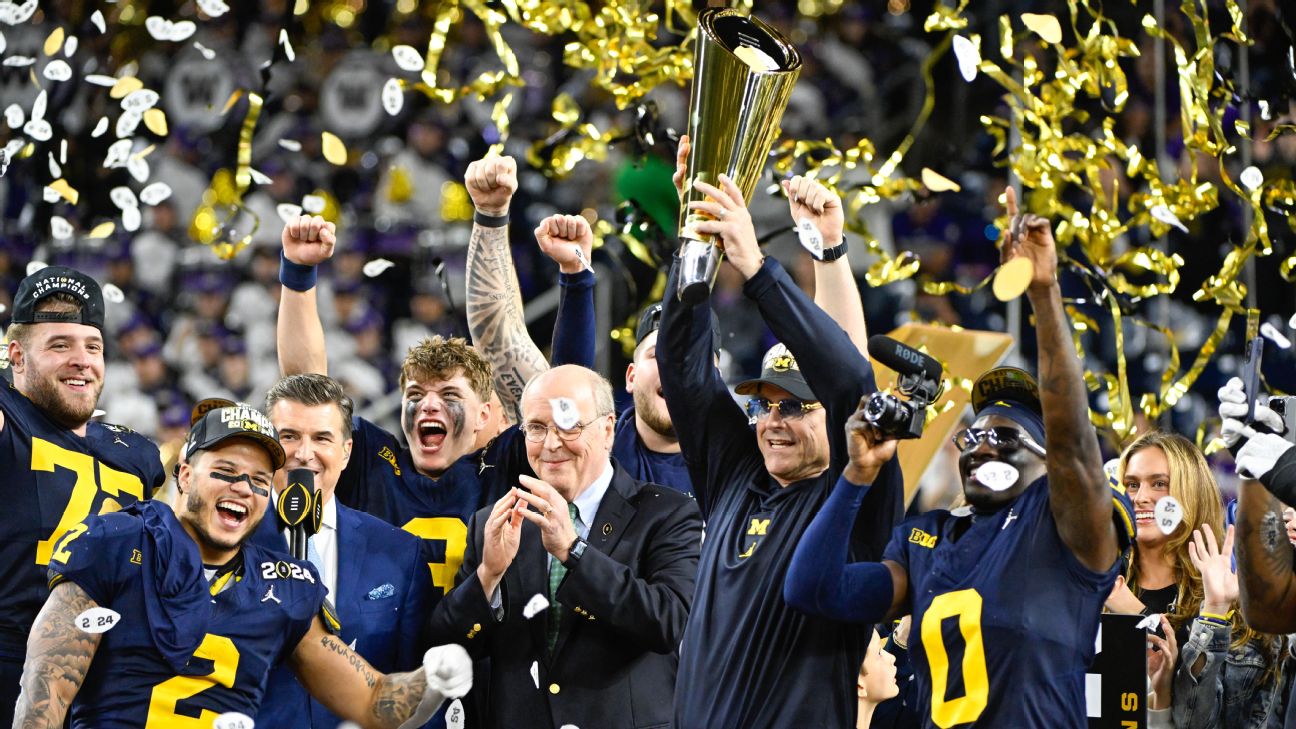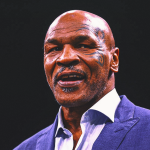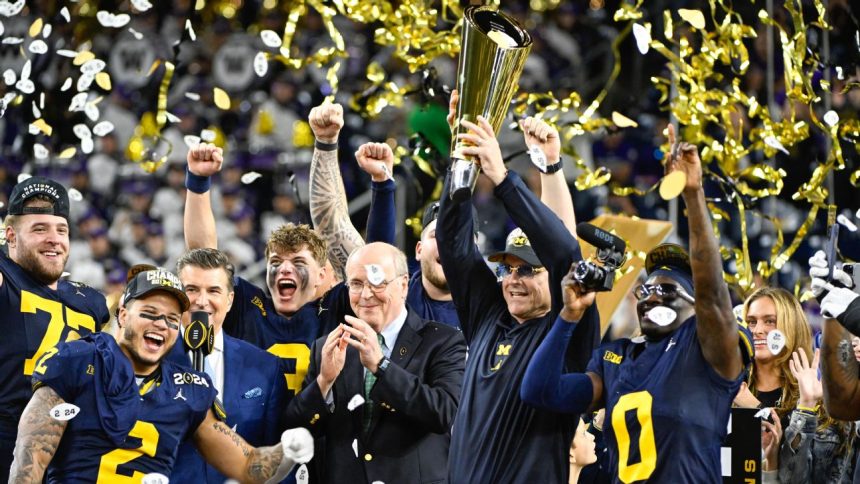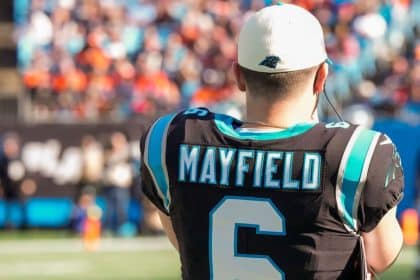
PHOENIX — NCAA president Charlie Baker said Michigan‘s football national championship was earned “fair and square,” and that his organization’s “unusual decision” to share information about cheating allegations during the season should help to eliminate doubts about the legitimacy of the Wolverines’ title run.
Baker said the NCAA decided to alert both Michigan and the Big Ten simultaneously this October after it received “very compelling” information that the Wolverines were involved in a broad and unusual sign-stealing scheme.
Those conversations resulted in the Big Ten suspending coach Jim Harbaugh for the final three games of the regular season. They also prompted Michigan analyst Connor Stalions to resign and the team to fire assistant coach Chris Partridge in November.
Bringing those allegations into the public domain, Baker said, allowed Michigan and its opponents to adjust and erased any potential unfair advantages for the Wolverines during the final month of the regular season and throughout its postseason run.
Michigan completed its 15-0 season by beating five ranked opponents in its final six games, all of which came after Stalions resigned.
“I don’t regret doing it because sitting on that information, given the comprehensiveness of it, I think we would have put everyone including Michigan in an awful place,” Baker said Tuesday night while speaking to a small group of reporters at the NCAA convention. “At the end of the day, no one believes at this point that Michigan didn’t win the national title fair and square. So I think we did the right thing.”
The NCAA’s investigation into Michigan’s alleged cheating scheme remains open. The football program is also under investigation for alleged recruiting violations, for which Harbaugh served a university-imposed three-game suspension at the start of the 2023 season.
Harbaugh and the team could receive additional sanctions for both pending cases.
Baker said he did not know what those penalties might be or when they would arrive. He said the NCAA infractions team is working on finding ways to move faster with its process. In the sign-stealing case, Big Ten commissioner Tony Petitti had to employ a controversial interpretation of the league’s sportsmanship policy to levy any punishment during the season in which alleged violation occurred.
“We do have a series of discussions going on with the infractions folks about whether or not we can’t do something to speed up the pace of our investigations,” Baker said. “Certainly in a case like this, we’d like to be able to move a lot more quickly.”
Baker said he hopes the investigation will pick up speed now that the season is over and the Michigan coaching staff will be more readily available to speak to investigators.
“I get that people had a lot on their plates,” Baker said.
Meanwhile, Harbaugh declined to answer questions about his future with Michigan in the hours after their championship victory Monday night, as multiple NFL teams are reportedly considering hiring him.
If Harbaugh does return to the professional level, Baker said he was not sure how that would impact the NCAA’s potential sanctions of Michigan or whether they would work with the NFL to try to hold him accountable in some way.
Harbaugh spoke at length Tuesday morning about the biggest issue on Baker’s plate in the coming year — the push to share more money with athletes. The coach said he believes coaches and administrators in college sports should all be willing to take a 5% to 10% pay cut to provide more to the players.
“We’re all robbing the same train,” Harbaugh said, before telling his players they should try to form a union. “… Everybody is maximizing every single revenue source there is, but they’re not sharing it with the talent. There’s no business where that would ever fly.”
Baker last month introduced a proposal for rule changes that would allow schools several new avenues to share some of their revenue with athletes. When asked if comments from a prominent head coach like Harbaugh were positive for the sport, Baker said he supported any coach using their significant platform to discuss the changes they want to see.
“I think coaches have a platform that is earned and deserved and they should feel free to talk about whatever they want to talk about,” Baker said. “Those are big-time jobs with big-time audiences and big-time impact.”











